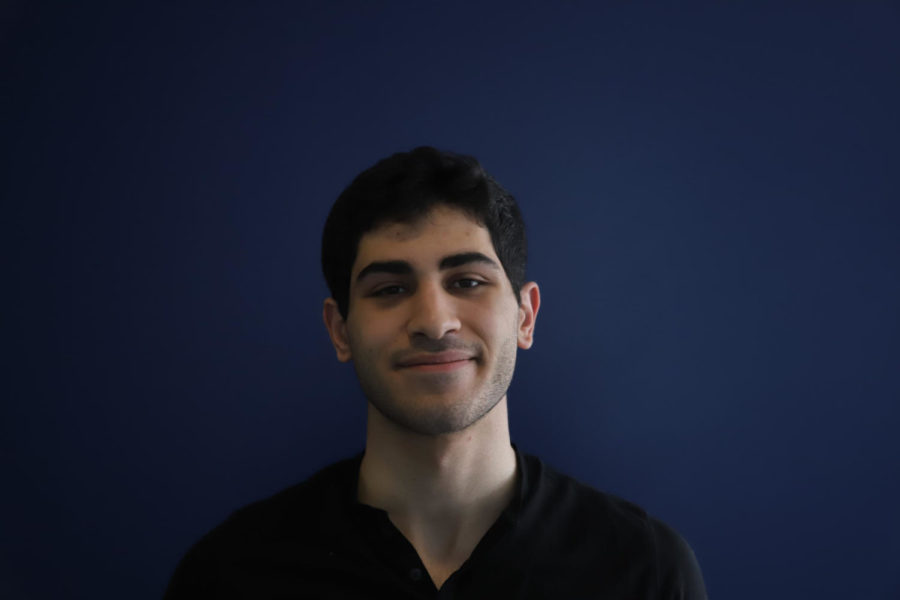Basil Yaseen elected USG President for 2023-2024 academic year
USG President-elect Basil Yaseen, the former VP of finance, promises to foster greater communication between USG and the student body and implement indexed tuition, a system where scholarships increase at the same rate as tuition.
April 21, 2023
The students of Case Western Reserve University voted this past week, between April 14-15, for their representatives within the Undergraduate Student Government (USG). This led to the election of third-year biology and economics student Basil Yaseen to be the USG president for the upcoming year, winning with 61.27% of the vote.
Yaseen comes into the job having previously been the USG vice president of finance in the 2022-2023 academic year, managing the funding of the majority of clubs on campus—the aspect of USG that CWRU students interact with the most. Within the role he worked to streamline the funding process to increase flexibility on club treasurers, increased resources for clubs to access additional funding, rebuilt relationships with the Student Executive Council (SEC) following two failed audits of USG under previous administrations and then convinced the SEC to increase USG’s budget by 18% so that more clubs under USG would get more funding in the future. While his term as VP of finance is coming to a close, he is still working to increase incentives for club treasurers to go to workshops and reduce the number of “resume-builder” clubs that inevitably die after a year.
All these changes, he believes, have made life easier for club treasurers on campus.
“The club treasurers from the year prior to us just [hated] USG. They were like, ‘Oh my God, we have to go through them to get our funding, and it’s gonna be so painful to do it,’” Yaseen explained. “So nowadays … they’re perfectly fine with going through our processes. And they recognize that like, ‘Hey, there’s just some limitations that will be implemented,’ but we’re making it as easy as possible for them. We’re trying to give them as much independence as we possibly can.”
With this experience of interacting with so many different members of the CWRU student body through finance, Yaseen ran on a platform of connection and transparency. In announcing his campaign Yaseen stated, “My main goal as president shall be to ensure that the functions of USG are as transparent as possible to the students” and that he would work “to represent the students and solely the students.” He also promised greater communication for USG initiatives and to advocate for issues that the student body actually cared about, such as indexed tuition—a model that would have CWRU increase scholarships at a commensurate rate as their tuition increases.
“It’s not a 100% fix, because, of course, the best solution is a static tuition that you pay the exact same amount every year. But it’s a realistic fix. So it’s very realistic that we can implement this indexed tuition next year, while static tuition is like years down the line.”
Yaseen especially noted that often USG feels like a completely separate entity from the rest of the student body and doesn’t necessarily reflect the feelings of CWRU as a whole. Increasing outreach and ensuring that representatives actually listen to their constituents will be a priority, along with increasing communication as to what USG is doing to solve problems. He proposed making the availability of USG meeting minutes and agendas advertised and also sending out a bi-weekly newsletter filled with updates on USG and the university as a whole. By increasing relations with the student body, he hopes to make sure that CWRU students stay informed and are able to make their voices heard to USG.
USG’s relationship with the administration has certainly been rocky over the past year, but Yaseen again attributes this to lack of communication between USG and CWRU administration.
“I want to increase that bond with [President] Kaler,” Yaseen said. “I find that the main issue that comes … between us and Kaler is just that communication. If we communicate with him more, we stay respectful, we don’t start being like, ‘Hey, your opinion on this is whacked’ or whatever … and we just communicate regularly, we invite him all the time to [the] General Assembly … I think our connection with him will grow stronger. And I hopefully will be able to … show our ideas to Kaler more so that he’ll be more accepting to potentially [putting] them more into effect and [advocating] for them himself.”
Yaseen hopes to be an effective bridge between the student body and the administration. By increasing transparency and communication on both sides of the conversation, he hopes to effectively transduct the feelings of CWRU students to those in charge of their university.
“The people that really matter are the students,” Yaseen stated. “My position doesn’t matter. I’ve said this earlier, my opinions don’t matter. And as president, I don’t think what I have to say matters a lick. It doesn’t matter at all because I’m not the one being represented. I’m just one of 5,000. The people that really matter are the other 4,999.”



